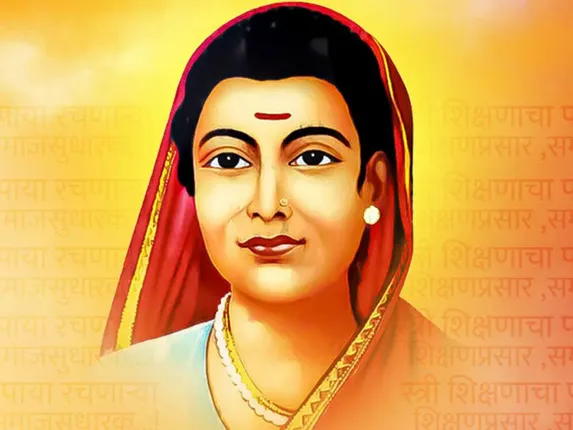The name of Savitribai Phule, a pioneer who reinterpreted equality and education in the 19th century, is closely linked to the history of women’s empowerment in India. As India’s first female educator and social reformer, Savitribai’s legacy continues to motivate women for decades to come. She is a symbol of optimism and advancement because of her undying confidence in the power of education and her unrelenting fight against gender and caste prejudice.
Early Life: Breaking Barriers
Savitribai Phule was born on January 3, 1831, in Naigaon, a small village in Maharashtra. Born into a marginalized community, Savitribai faced the harsh realities of caste and gender-based oppression from a young age. Despite societal constraints, her husband, Jyotirao Phule, recognized her potential and supported her education, a radical step at the time. Jyotirao’s progressive outlook laid the foundation for Savitribai’s future endeavors.
Education: A Revolutionary Step
Savitribai’s journey as a learner and later as an educator marked a revolutionary chapter in Indian history. After becoming literate under Jyotirao’s guidance, she pursued teacher training at a missionary institution in Pune. Savitribai’s thirst for knowledge and commitment to education culminated in her becoming India’s first female teacher, a title that she wore with pride and responsibility.
Establishing Schools: A Beacon of Hope
In 1848, Savitribai and Jyotirao Phule established the first school for girls in Bhide Wada, Pune. This was a monumental achievement in a society where education for women was deemed unnecessary and even immoral. Despite facing severe backlash, including verbal and physical abuse, Savitribai persisted. Over time, the Phules established multiple schools, emphasizing the inclusion of girls and children from marginalized communities.
Their curriculum was progressive, focusing on critical thinking rather than rote memorization, and included subjects such as mathematics, science, and social studies. These schools served as sanctuaries for young minds, offering them a chance to dream beyond societal limitations.
Fighting Social Evils
Savitribai Phule’s contributions extended beyond education. She was a fierce advocate for the rights of widows and fought against the inhumane practice of Sati. Alongside Jyotirao, she opened a care center for pregnant widows, providing them with a safe space to deliver and nurture their children. This initiative, known as the “Balhatya Pratibandhak Griha” (Child Infanticide Prevention Home), was revolutionary in addressing issues of infanticide and widow remarriage.
Savitribai also championed the cause of inter-caste marriages, defying the rigid caste hierarchies of her time. Her efforts were instrumental in laying the groundwork for social reform and justice in India.
Literary Contributions
Savitribai was not just a reformer and educator; she was also a prolific writer. Her poems and essays reflect her revolutionary ideas and deep empathy for the oppressed. Her writings, such as “Kavya Phule” and “Bavan Kashi Subodh Ratnakar,” are powerful expressions of her thoughts on equality, education, and women’s rights. Through her literature, she encouraged women to rise above societal shackles and fight for their dignity.
Facing Resistance
The road to reform was not easy for Savitribai Phule. She faced intense opposition from conservative elements in society. Her progressive views and actions often made her a target of ridicule and hostility. Yet, her resilience and belief in the transformative power of education kept her moving forward. Savitribai’s life is a testament to the strength required to challenge entrenched systems of oppression.
Legacy and Impact
Savitribai Phule’s legacy is far-reaching. Her pioneering work in women’s education laid the foundation for countless reforms in India. The schools she established became a model for inclusive education, and her fight for gender equality inspired subsequent generations of activists and educators.
Today, her contributions are celebrated across the nation, particularly on her birth anniversary, January 3, which is observed as “Balika Din” (Girl Child Day) in Maharashtra. Her name is synonymous with courage, vision, and an unwavering commitment to social justice.
Lessons for Today
In an era where women’s education and empowerment remain critical issues, Savitribai Phule’s life offers invaluable lessons. Her story reminds us of the transformative power of education and the importance of standing up against injustice. She exemplifies how one person’s determination can bring about systemic change, even in the face of immense adversity.
As we navigate contemporary challenges, from gender inequality to educational disparities, Savitribai’s work serves as a guiding light. Her emphasis on inclusivity and empowerment continues to inspire policies and initiatives aimed at building a just and equitable society.











